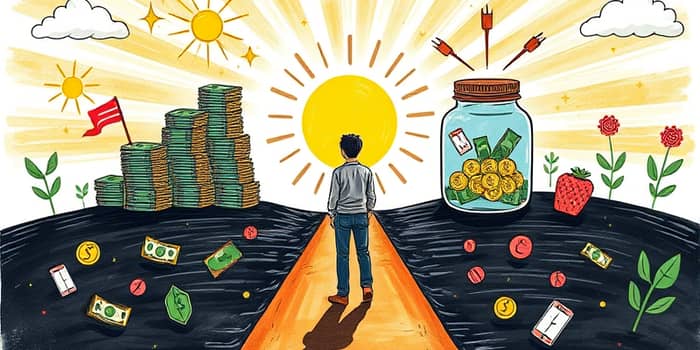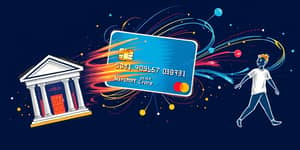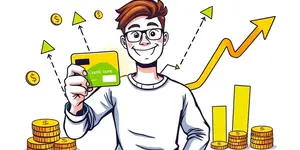
When unexpected expenses strike, the temptation of quick cash can feel overwhelming. But before you consider pulling money from your credit card or seeking a payday loan, it is vital to understand the implications. Cash advances may seem convenient, but they often come with consequences that can derail your financial well being.
Imagine facing a medical bill due tomorrow or a broken down car preventing you from getting to work. In that panic, a cash advance might seem like a lifeline. Yet the relief is short lived when fees and interest pile up, leaving you worse off than before.
A cash advance is a form of short term borrowing solution that allows you to withdraw funds using your credit card or through specialized lenders. Rather than tapping into your own savings, you are essentially taking out a loan that begins accruing interest immediately.
Unlike regular purchases, cash advances come with no grace period before interest. From the moment you withdraw the funds, interest charges begin to accumulate, often compounding daily and inflating your balance faster than you might realize.
Consider this scenario: you withdraw 500 dollars with a 25 percent APR and a 5 percent fee. Within a month, you could owe more than 535 dollars, with interest continuing to pile on each day you carry that balance. The costs can escalate out of control before you even spot them on your statement.
High costs hide behind every advance. Transaction fees, often 3 to 5 percent, are applied at the point of withdrawal. Then, interest rates skyrocket, averaging 25 percent APR or more for credit cards and 300 to 400 percent for payday loans.
Because there is no true repayment grace, your balance balloons rapidly. Even a small advance can lead to months of paying only interest, trapping you in a cycle of debt.
Cash advances can introduce a series of risks that reach far beyond mere high costs. When you take out a payday loan or tap your credit line, you begin a path that is hard to reverse.
The emotional toll can be heavy as well. Stress, anxiety, and a sense of powerlessness often accompany the mounting bills. Many borrowers find themselves avoiding statements and calls, deepening the financial hole.
Before you reach for a cash advance, consider other options that can address your needs without the hidden costs.
Negotiation can often reduce fees or allow you to spread payments over several months. Community programs may offer grants or interest free loans. A personal loan from a bank or credit union often carries a lower interest rate and predictable payment schedule compared to payday products.
If you have a relationship with your bank, inquire about hardship programs. Many institutions provide short term relief or skip a payment without additional penalties.
Although generally ill advised, there are moments when a cash advance may be the only path to avert a crisis. Use extreme caution and borrow only what is necessary.
In these rare scenarios, plan for rapid repayment. Look at the fees and interest and calculate exactly how much you must set aside to clear the debt in the shortest time possible.
By framing the advance as a true last resort, you can limit its negative impact and avoid repeating the pattern in the future.
Rebuilding and strengthening your finances begins with small, consistent actions. An emergency fund, even one with 500 dollars, creates a buffer that eliminates the need for high cost borrowing.
Consider these strategies:
Each measure takes you further from desperation and closer to a position of strength. As your fund grows, you gain breathing room and confidence in handling emergencies without fear.
Effective preparation can turn crises into manageable challenges rather than financial disasters. Build a plan that includes:
By having these elements in place, you protect yourself against the lure of cash advances and preserve your long term financial health.
Escaping the cycle of high cost borrowing is more than just avoiding fees; it is about reclaiming peace of mind. Every step you take toward budgeting, saving, and exploring smarter alternatives is a step toward truly lasting stability.
When you know your options and have a plan, cash advances lose their appeal. Instead, you cultivate a foundation that supports your goals, reduces stress, and empowers you to face the future with confidence.
References













